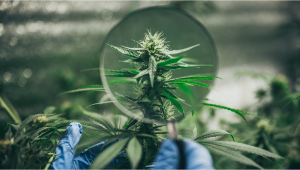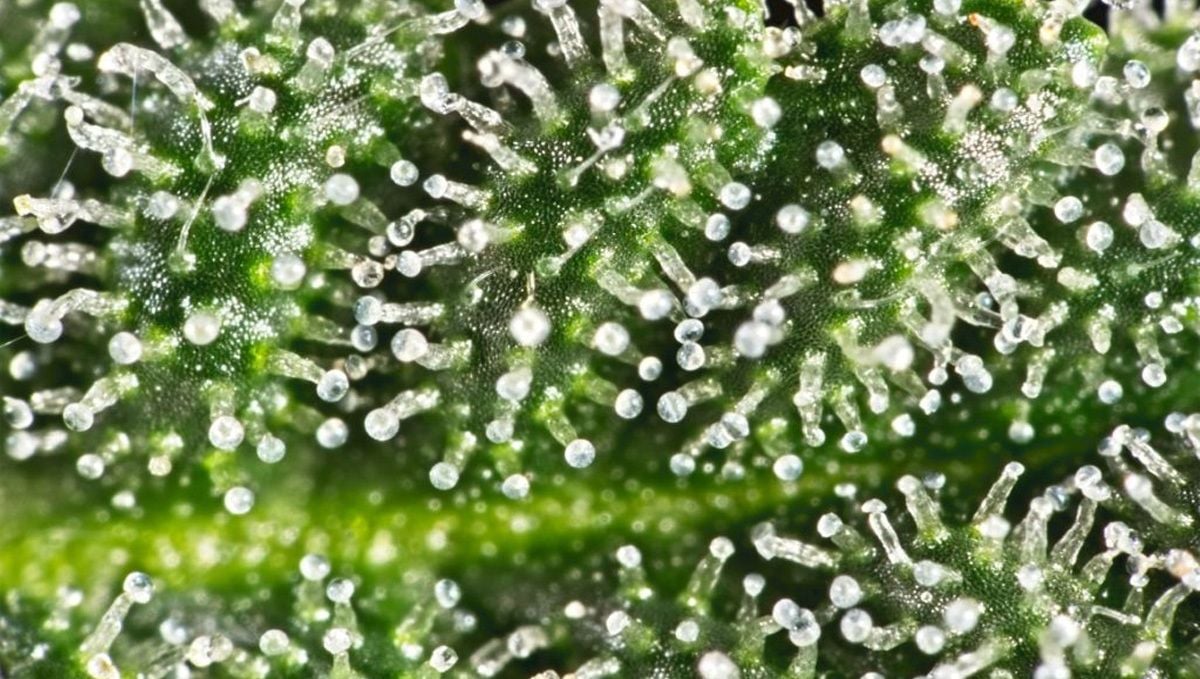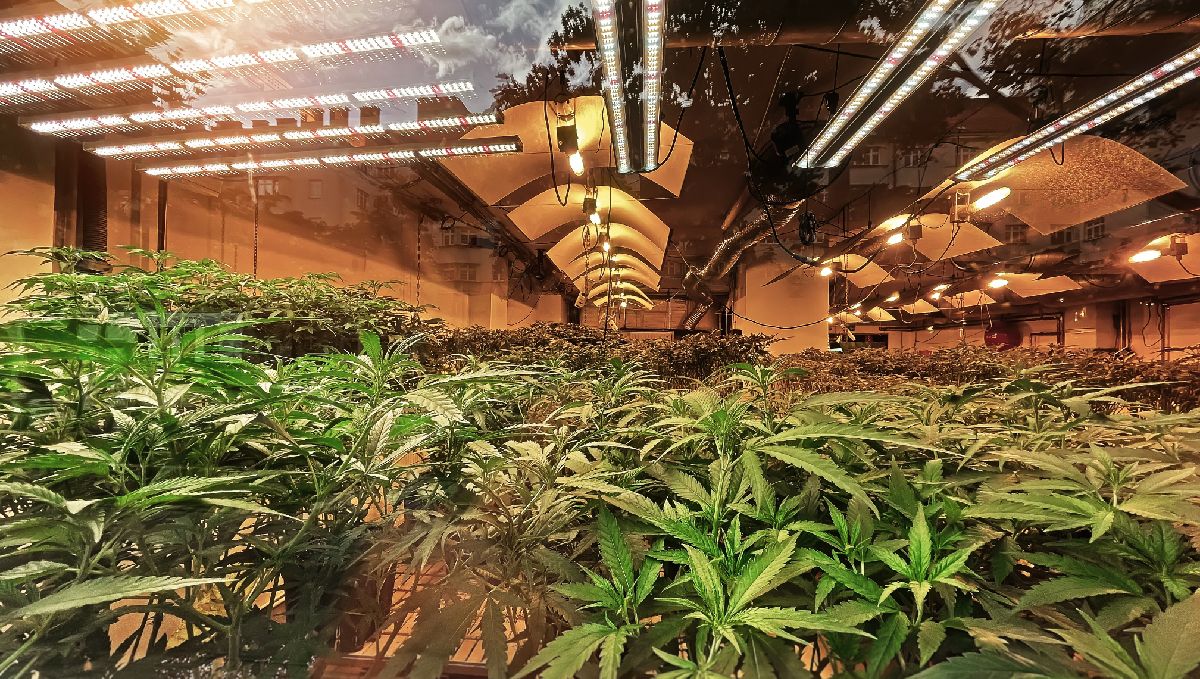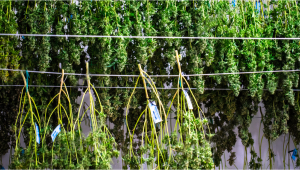How to Increase THC in Cannabis Plants?

- 1. Why increase thc at all?
- 2. How to increase thc in cannabis plants?
Growing cannabis seeds is an amazing art that gets better in time. Many growers love growing marijuana at home simply because it allows them to get the best out of their plants. From selecting a specific strain to the amount of buds produced, you can train the plant to grow according to your wish. But, a question that most growers ask is “How to increase THC?”
If you’re asking this question, you’re not alone. Almost everyone wants a bang for their buck by growing cannabis at home. And, what better way to achieve that other than increasing THC? Typically, medical marijuana users look for strains high in CBD, but one can’t ignore THC. Cannabis isn’t complete with THC, to be honest. If you love the effects of THC, you’ll be pleased to know that there are various ways to increase THC in the plants you’re growing at home. So, read on and educate yourself on to how to turn your plant into a THC-generating monster!
Why increase THC at all?
THC is prone to attracting false rumors. From misjudging cannabis to alienating THC, the cannabis community has seen it all. The rumors became so strong that people didn’t even want to touch cannabis high in THC. But that, fortunately, is changing now as new studies indicate that THC isn’t really bad.
Sure, CBD is great without any psychoactive effects, but what if the effects did more good than harm? Were you aware that even THC contains many medicinal benefits? In fact, it’s suggested that buds containing high levels of THC are recommended to treat chronic pain, headaches, migraines etc. What’s more, it even increases the appetite, indicating its efficiency to help patients suffering from a poor appetite.
Of course, THC does induce psychoactive effects but considering that the positive effects outweigh the negative ones, it does make you wonder if THC is really the ‘evil’ like it’s often projected to be. People have been enjoying the psychoactive effects for centuries, and it isn’t going to stop now. Not when studies indicate that the psychoactive effects may actually protect the brain and stimulate brain growth! Also, it’s almost impossible to overdose on tetrahydrocannabinol or THC, so why not embrace the lovely cannabinoid rather steer away from it? CBD is not the only cannabinoid with medicinal benefits. Fact is that both CBD and THC work together to deliver positive effects we have come to love.
How to increase THC in cannabis plants?
No matter what type of cannabis you grow, the techniques to increase THC remains the same. Whether they are autoflowers, photoperiods, regular or feminized, one can use any of these methods to increase THC.
Choose the right strain
No, you can’t increase THC if you begin with a seed containing high levels of CBD. To increase CBD, you need to choose a strain like CBD Crack Auto. What does that tell you? Well, it simply means that you can’t make the plant perform against its genetics.
The genetics of the strain dictates how far the plant can go. For example, imagine you chose to grow Green Crack. Green Crack does make you laugh and comes with a host of positive effects, but the THC levels will reach only up to 20 percent no matter what you do.
It’s possible to decrease THC by keeping the plant unhealthy, but you’re not likely to go above the levels especially when the amounts of THC are already set at a certain level. So, it’s recommended that you choose strains with strong genetics. And you don’t need anyone to tell you that it’s crucial to purchase seeds only from selected breeders with years of experience.
It’s best to choose strains that already contain high THC levels. Strains like Gorilla Glue produce over 22 percent, and even Tangie Auto goes over 23 percent at times, making them perfect candidates for your experiment.
Protect those trichomes
First of all, we need to clear something up! This might come as a huge surprise to you, but the cannabis plants flowering in your grow room or garden this instance barely contain any THC at all. But don’t worry, they’ll still get you high! Instead, they contain the chemical precursor to THC—a cannabinoid acid that goes by the name of THCA. Interestingly, this secondary metabolite isn’t psychoactive in humans, because it fails to bind to a site called the CB1 receptor in the same way as THC. However, THCA is converted into THC through a process called decarboxylation.

It might sound complex, but all it involves is heat and time. During this a carboxylic acid group on the THCA molecules ejects, leaving THC behind. This phenomenon happens during popular ways to process weed flowers, including baking them in the oven or holding a flame to them after packing them into a blunt or bong bowl. Below, we’ll refer to maximising THC in your weed plants, just to keep things simple. However, know that the strategies we discuss are actually promoting the synthesis of THCA, which later turns into THC thanks to human technological interventions.
Nothing beats the feeling of rubbing your hands on cannabis buds to get a whiff of the fragrance. It’s heavenly and aromatic, but it has its own disadvantages. Admittedly, aggravating the trichomes generates a wonderful scent, and we’re all guilty of doing it at one point of time or another. However, you’re destroying the trichomes of the bud when you do so.
Trichomes are the bulbous projections found on the leaves and buds. They resemble antennae and contain many cannabinoids, flavonoids, terpenes, and THC. Most of the THC found in the plant is concentrated in the trichomes, so it makes sense to protect them. The only problem is they are fragile and can be easily destroyed.
Apart from handling the trichomes roughly, there are other ways you could lose them. For instance, trichomes are susceptible to extreme temperatures and other environmental factors including light and humidity. One major advantage of growing indoors is the ability to manipulate the temperature, humidity, and ventilation. As a grower, you must learn how to use your resources wisely.
One way to increase trichomes is to introduce supplements. From fertilizers meant to boost the trichomes during the flowering stage to organic nutrients like Blackstrap Molasses, you can do several things to make the plants happy. If growing in soil, feeding the microorganisms will help the plant in more ways than you can imagine.
As long as the temperatures range between 20–30° C, you have a greater chance of protecting the trichomes. Autoflowers are resistant to heat, but only to a certain extent, making it difficult to preserve the trichomes when temperatures fluctuate wildly. Similarly, the trichomes begin to degrade when the temperatures go below 15 to 18° C, so keep that in mind when growing cannabis plants.
Provide as much light as possible
Autoflowers will grow well if you provide 10, 12 or 14 hours of light. But, they grow to massive proportions if you increase the light just a bit more. Why does that happen? Well, light is synonymous to food when it comes to plants. And it applies to almost all plants. When the light increases – even if it’s just for an hour or so – the process of photosynthesis kicks in, making more energy available to the plant.

Suffice it to say that the more light you provide, the healthier the plant gets. And what do healthy cannabis plants do? They produce good levels of THC. That’s right – it’s as simple as that. It’s all about keeping the plant happy to do just what it’s meant to do. Don’t overdo it, though, because powerful light sources can destroy the trichomes and terpenes if they are too close to the plant.
If you’ve noticed your buds and leaves that are close to the light turning white, it’s because the light is extremely powerful. It can be fixed by adjusting the distance between the plant and the light, but if the trichomes are damaged already, not much can be done.
Harvest only when the plant is ready
One of the most common mistakes is to harvest the plant even before it has completed its cycle. Agreed, it’s tempting to harvest the buds and smoke them ASAP, but just ask yourself if you put in all the hard work just to get buds that aren’t potent! Potency is what you want, and the plant increases its potency with time, making the timing very crucial.
The best time to harvest the buds is when the trichomes turn milky in color. Not all, but at least 50-60 percent of the trichomes should be milky while the rest remain clear. Some growers harvest early when all the trichomes are clear and a few others do it when all the trichomes turn milky, depending on the effects they need.
Buds harvested early produce more psychoactive effects. Conversely, buds chopped at the later stages produce an Indica effect with a ‘body high’, but the effects of THC are reduced a little. Whether you harvest too early or late, the plant doesn’t produce much THC because the trick lies in harvesting the plant at the right time.
Curing
Curing has its own advantages apart from imparting a great flavor. It reduces the harshness of the smoke because the amount of chlorophyll reduces significantly, but it also produces more THC. To understand this better, imagine smoking a freshly harvested bud. Apart from coughing your lungs out, you don’t receive a lot of benefits. Freshly harvested buds not only make a harsh smoke, but it doesn’t contain THC as well! This is because the plant takes time to convert THCA to THC. Tetrahydrocannabinolic acid, apart from being a tongue twister, is also a cannabinoid present in the plant. It does have medicinal benefits like the other cannabinoids, but it’s not psychoactive like THC.
The buds impart THC or the desired psychoactive effects only when the THCA is broken down to THC, and a great deal of that occurs during curing. Decarboxylation is another way to convert THCA to THC instantly, which is why you heat the buds before making edibles.
If you don’t heat the buds, the THC is not activated and your cookies will taste more like grass rather than imparting a flavor and taste you expected. Therefore, a natural way to generate more THC is achieved by curing the buds. No matter how much you want to skip curing and smoke the buds, refrain from doing so because you’re simply throwing away all the benefits down the drain.












Comments